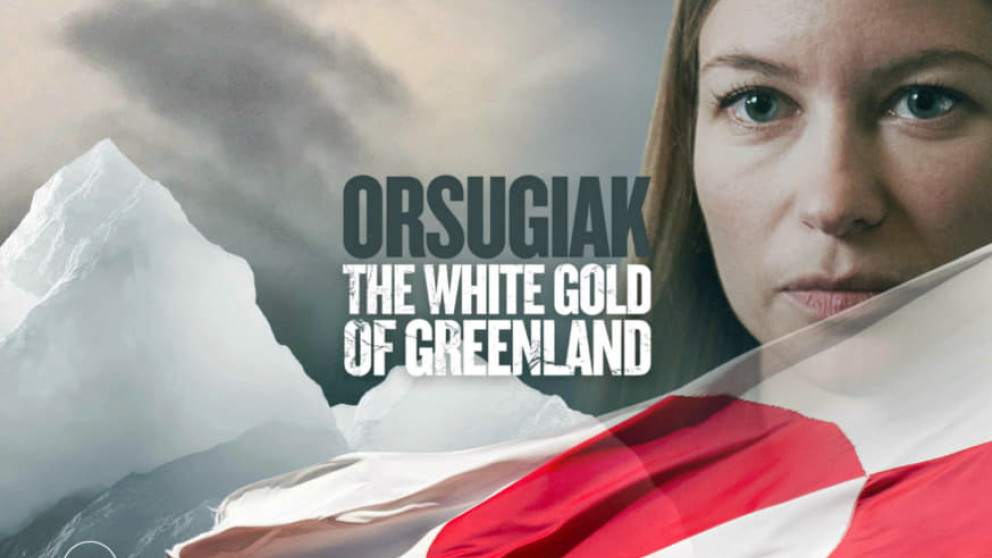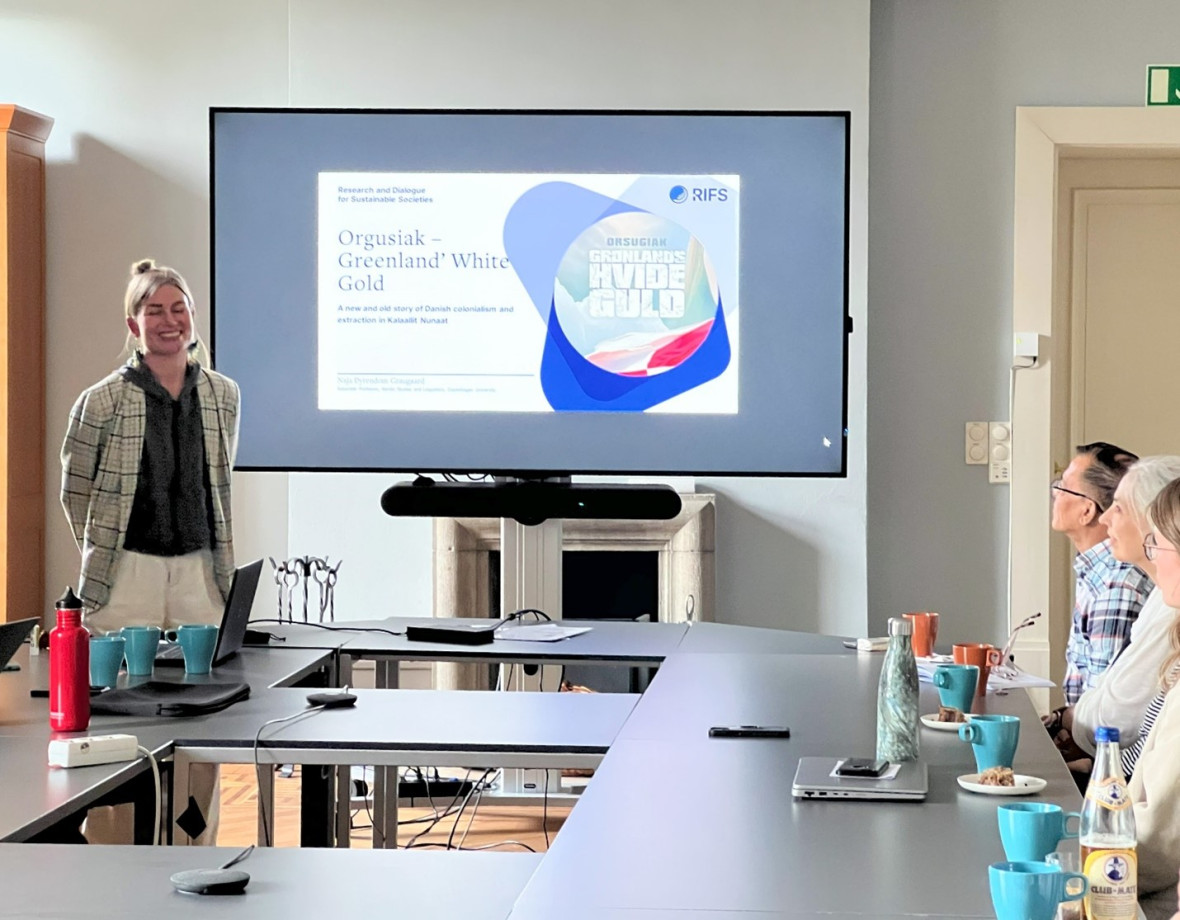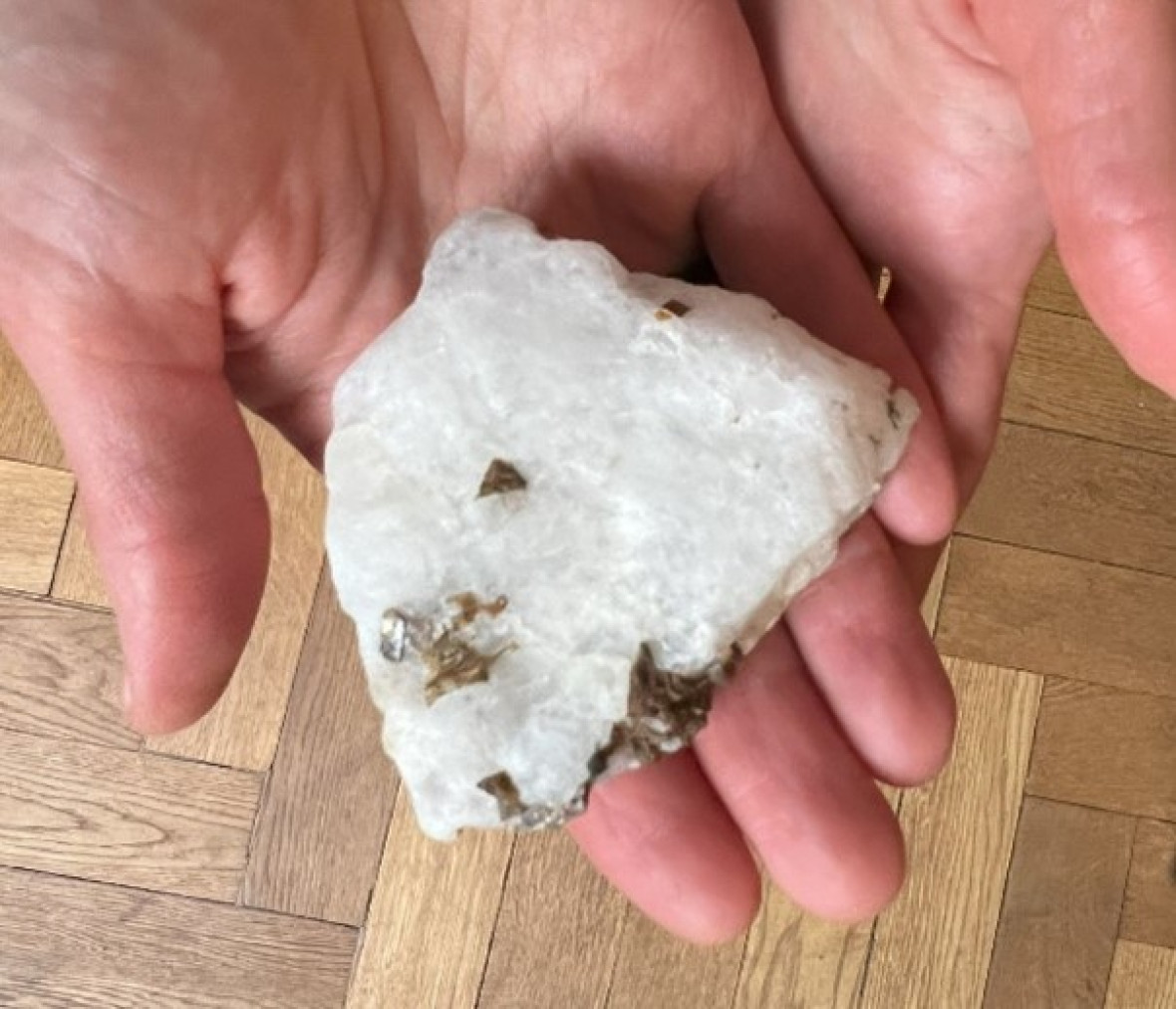“Orsugiak – The White Gold of Greenland” – A New and Old Story of Danish Colonialism and Extraction in Kalaallit Nunaat (Greenland)
23.04.2025

On 15 April, the RIFS research group reIMAGINE Arctic Research hosted a screening of the documentary “Orsugiak – The White Gold of Greenland”, directed by Otto Rosing and Claus Pilehave, as part of a workshop on creative research methods and the unsettling of dominant narratives through film. The screening and discussion were led by professor Dr. Naja Dyrendom Graugaard in her roles as both associate professor at Copenhagen University, focusing on critical Inuit studies and (de)colonial relations between Denmark and Kalaallit Nunaat (Greenland), and as the lead protagonist of the film, sharing her family history. Since April 2025, Naja Dyrendom Graugaard is also an affiliate scholar at RIFS’s at the reIMAGINE Arctic Research group, bringing new perspectives to the continuing dominance of knowledge regimes in the Arctic, and its possible effects on the European research community working in the Arctic.
“Orsugiak – The White Gold of Greenland” portrays the forgotten story of the Danish extraction of cryolite in Ivittuut, Southern Kalaallit Nunaat. By going deeper into the historical power dynamics related to these activities, the documentary seeks to uncover new aspects of colonial expropriation and the (de)generation of wealth. Ivittuut is one of the few places in the world to have naturally occurring cryolite, a rare mineral used in the production of aluminum, of which Denmark became a major supplier. The exploitation of Kalaallit Nunaat’s lands by Denmark lasted for decades and, while it generated significant revenues for the Danish economy in connection with the production of aluminum, these mining activities had a lasting and negative impact on the local Inuit community.

The film challenges the narrative of Denmark as a “benevolent colonialist” and its role as the “economic provider” within the framework of power dynamics between Denmark and Kalaallit Nunaat. In doing so, the film calls into question the public perception that Kalaallit Nunaat has benefitted greatly from its relationship to Denmark – and not vice versa. The documentary was screened in Denmark in February 2025 and was heavily criticized in the Danish media, as it was accused of being ‘misleading’, ‘unfactual’, and ‘biased’ — this, despite the extensive research, archival and scholarly work that informs it, including the work of Naja Dyrendom Graugaard. Eventually, the film was retracted from public televisions and platforms, with serious repercussions for Danish-Greenlandic relations.
During the lively debate that followed the screening of the documentary, Naja Dyrendom Graugaard brought in perspectives on how cryolite can be used as a prism to understand the mechanisms of Danish colonial history, and what the violent backlash that both the documentary and her participation in the film as a Danish-Kalaaleq researcher, can teach us new layers of contemporary colonial landscape and relations.

The audience at RIFS received the documentary very positively, describing it as “powerful”, “much needed”, and “just towards the history and the Indigenous population of Kalaallit Nunaat”.
The collaboration between reIMAGINE Arctic Research and Naja Dyrendom Graugaard is grounded in a shared interest in learning from contemporary manifestations of Scandinavian colonialism through the example of Danish exceptionalism. The screening of “Orsugiak – The White Gold of Greenland” presented itself as an opportunity to better understand the complexity of power relations in the Arctic, told from a perspective usually marginalized -both in academia and in the public arena-, in this case the Indigenous population living in Kalaallit Nunaat.
We would like to thank the directors for enabling this screening of the film and Naja Dyrendom Graugaard for joining us in Potsdam, adding context, and enriching the debate with her valuable expertise and experience.
